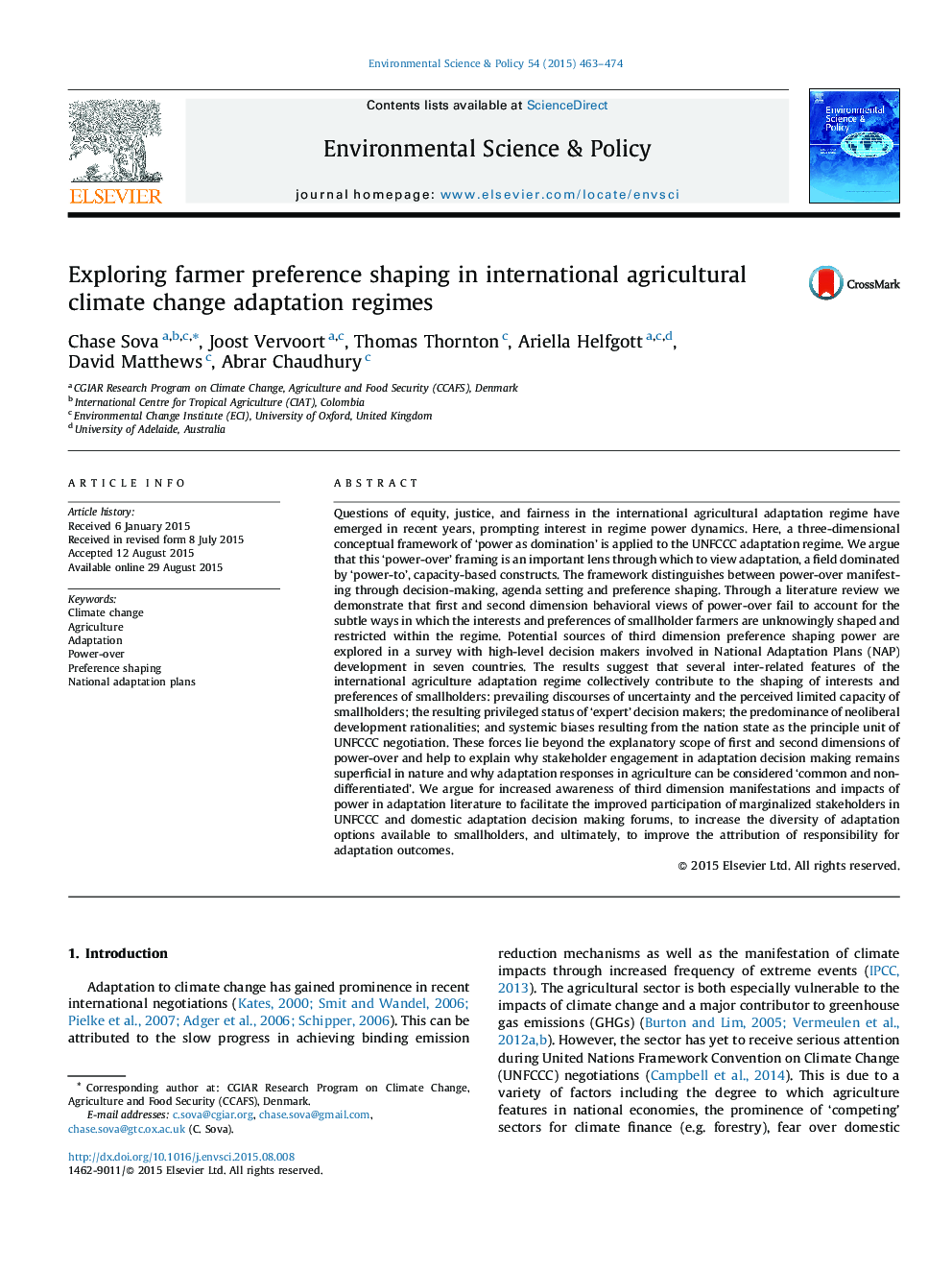| کد مقاله | کد نشریه | سال انتشار | مقاله انگلیسی | نسخه تمام متن |
|---|---|---|---|---|
| 7467418 | 1485053 | 2015 | 12 صفحه PDF | دانلود رایگان |
عنوان انگلیسی مقاله ISI
Exploring farmer preference shaping in international agricultural climate change adaptation regimes
ترجمه فارسی عنوان
بررسی اولویت کشاورزان در رژیم های سازگاری تغییرات اقلیمی کشاورزی بین المللی شکل می گیرد
دانلود مقاله + سفارش ترجمه
دانلود مقاله ISI انگلیسی
رایگان برای ایرانیان
کلمات کلیدی
تغییر آب و هوا، کشاورزی، انطباق، قدرت گرفتن، ترجیح دادن شکل دادن، طرح های انطباق ملی،
موضوعات مرتبط
مهندسی و علوم پایه
مهندسی انرژی
انرژی های تجدید پذیر، توسعه پایدار و محیط زیست
چکیده انگلیسی
Questions of equity, justice, and fairness in the international agricultural adaptation regime have emerged in recent years, prompting interest in regime power dynamics. Here, a three-dimensional conceptual framework of 'power as domination' is applied to the UNFCCC adaptation regime. We argue that this 'power-over' framing is an important lens through which to view adaptation, a field dominated by 'power-to', capacity-based constructs. The framework distinguishes between power-over manifesting through decision-making, agenda setting and preference shaping. Through a literature review we demonstrate that first and second dimension behavioral views of power-over fail to account for the subtle ways in which the interests and preferences of smallholder farmers are unknowingly shaped and restricted within the regime. Potential sources of third dimension preference shaping power are explored in a survey with high-level decision makers involved in National Adaptation Plans (NAP) development in seven countries. The results suggest that several inter-related features of the international agriculture adaptation regime collectively contribute to the shaping of interests and preferences of smallholders: prevailing discourses of uncertainty and the perceived limited capacity of smallholders; the resulting privileged status of 'expert' decision makers; the predominance of neoliberal development rationalities; and systemic biases resulting from the nation state as the principle unit of UNFCCC negotiation. These forces lie beyond the explanatory scope of first and second dimensions of power-over and help to explain why stakeholder engagement in adaptation decision making remains superficial in nature and why adaptation responses in agriculture can be considered 'common and non-differentiated'. We argue for increased awareness of third dimension manifestations and impacts of power in adaptation literature to facilitate the improved participation of marginalized stakeholders in UNFCCC and domestic adaptation decision making forums, to increase the diversity of adaptation options available to smallholders, and ultimately, to improve the attribution of responsibility for adaptation outcomes.
ناشر
Database: Elsevier - ScienceDirect (ساینس دایرکت)
Journal: Environmental Science & Policy - Volume 54, December 2015, Pages 463-474
Journal: Environmental Science & Policy - Volume 54, December 2015, Pages 463-474
نویسندگان
Chase Sova, Joost Vervoort, Thomas Thornton, Ariella Helfgott, David Matthews, Abrar Chaudhury,
